
Judgement (XX), or in some decks spelled Judgment, is a tarot card, part of the Major Arcana suit usually comprising 22 cards.

The Four of Wands is a card used in Latin-suited playing cards which include tarot decks. It is part of what tarot card readers call the "Minor Arcana".

The Page of Wands is a card used in Latin-suited playing cards which include tarot decks. It is part of what tarot card readers call the Minor Arcana.

The Queen of Wands is a court card in the Minor Arcana set of the tarot.

The Ace of Cups is a card used in Latin-suited playing cards. It is the ace from the suit of cups. In Tarot, it is part of what card readers call the "Minor Arcana", and as the first in the suit of cups, signifies beginnings in the area of the social and emotional in life.
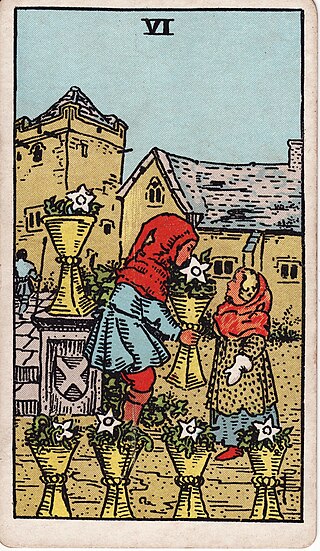
The Six of Cups is a Minor Arcana tarot card.
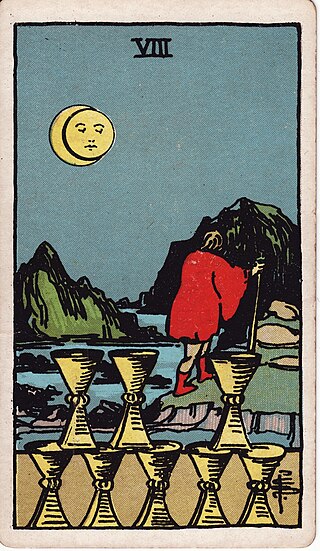
The Eight of Cups is a card used in Latin-suited playing cards, which include tarot decks. It is part of what tarot card readers call the "Minor Arcana"
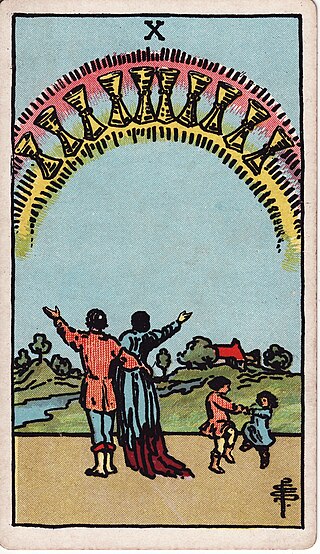
The Ten of Cups is a Minor Arcana tarot card.
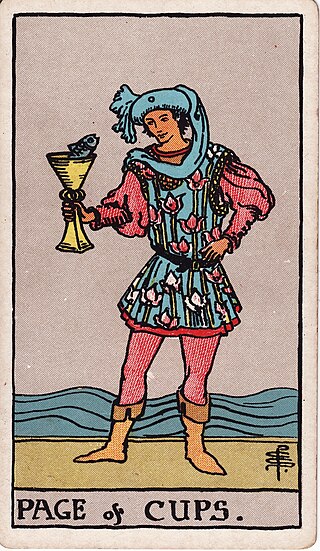
The Page of Cups is a card used in Latin-suited playing cards which include tarot decks. It is part of what tarot card readers call the "Minor Arcana"
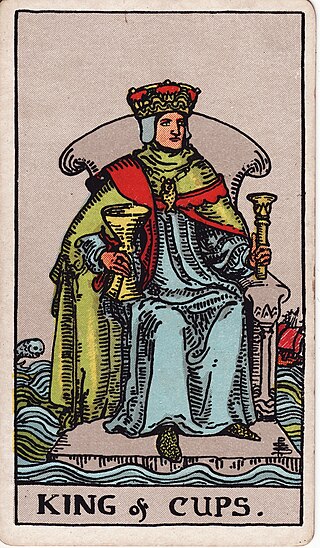
The King of Cups is a card used in suited playing cards, which include tarot decks. It is part of what esotericists call the Minor Arcana.
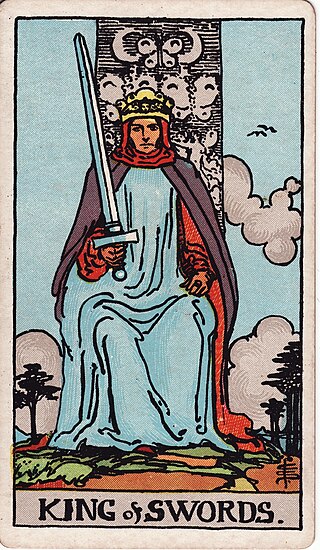
The King of Swords is a card used in Latin-suited playing cards which include tarot decks. It is part of what tarot card readers call the "Minor Arcana".

Ace of Coins is a card used in Latin-suited playing cards, which include tarot decks. It is part of what tarot card readers call the "Minor Arcana" The coins suit is often called "Pentacles" by tarot readers.

The Seven of Coins is a card used in Latin-suited playing cards which include tarot decks. It is part of what tarot card readers call the "Minor Arcana".

Eight of Coins is a card used in Latin-suited playing cards which include tarot decks. It is part of what tarot card readers call the "Minor Arcana"

Nine of Coins is a card used in Latin-suited playing cards which include tarot decks. It is part of what tarot card readers call the "Minor Arcana" and represents a financially independent aristocrat.
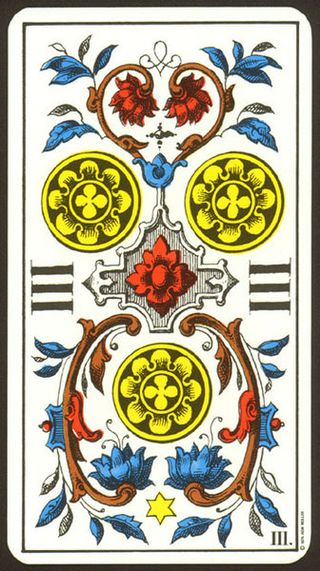
The suit of coins is one of the four suits used in tarot decks with Latin-suited cards. It is derived from the suit of coins in Italian and Spanish card playing packs.

The Ace of Wands is a tarot card of the Minor Arcana, arcana being Latin for mysteries. The cards of the Minor Arcana are considered to be lesser compared to the Major Arcana because they discuss the minor mysteries of life, less important archetypes. Modern tarot readers interpret the Ace of Wands as a symbol of optimism and invention.

The suit of wands is one of four suits in tarot, collectively known as the Minor Arcana. Like the other tarot suits, the suit of wands contains fourteen cards: ace (one), two through ten, page and knight, queen and king. When Tarot cards are to play Tarot card games, where wands corresponds to the suit of batons. Tarot cards came to be utilized for divinatory purposes by esotericists such as Eliphas Levi and were regularized into the divinatory form most known today by the Hermetic Order of the Golden Dawn and the Rider–Waite Tarot, created by a Golden Dawn member.

The suit of goblets, more often known in modern times as the Suit of Cups, is one of four suits of tarot which, collectively, make up the Minor Arcana. They are sometimes referred to as chalices. Like the other suits of the Minor Arcana, it contains fourteen cards: ace (one), two through ten, page, knight, queen and king. Historically, the suit represented the First Estate. Tarot cards were originally designed for card play and are still used throughout much of Europe to play various Tarot card games. However, in English-speaking countries, where the games are largely unknown, Tarot cards came to be utilized primarily for divinatory purposes. In modern card games, the equivalent suits are Hearts or Cups.

Tarot card reading is a form of cartomancy whereby practitioners use tarot cards to purportedly gain insight into the past, present or future. They formulate a question, then draw cards to interpret them for this end. A traditional tarot deck consists of 78 cards, which can be split into two groups, the Major Arcana and Minor Arcana. French-suited playing cards can also be used; as can any card system with suits assigned to identifiable elements.




















